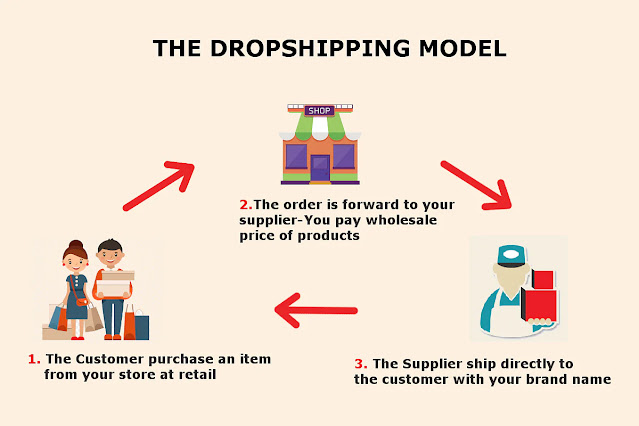E-commerce.
#what is ecommerce ?
Ecommerce, short for "electronic commerce," refers to buying and selling goods or services through the internet. This can include online retail stores, business-to-business (B2B) transactions, and online auctions. Ecommerce allows consumers to shop and make purchases from the convenience of their own homes, and businesses to reach a larger customer base and operate 24/7.
Ecommerce can be a profitable business, but it also depends on various factors such as the niche, products or services, competition, marketing strategy, and overall execution. Many ecommerce businesses are successful and generate significant revenue, but it can also be a highly competitive field and requires a lot of effort to stand out and drive sales. It is important to have a well-defined target market, a unique value proposition, and a strong digital marketing strategy to drive traffic to your website. Additionally, ecommerce businesses have lower overhead costs compared to traditional brick-and-mortar businesses, which can result in higher profit margins. However, it's important to consider the costs of sourcing, manufacturing, and delivering products, as well as the cost of operating and maintaining an ecommerce platform. Overall, ecommerce can be a profitable business, but it requires a lot of work and planning. It's important to conduct thorough market research, develop a solid business plan, and continuously monitor and optimize your sales and marketing efforts to increase your chances of success.
#How to Start an E-commerce Buisness...
Starting an ecommerce business can be a relatively straightforward process, but it does require careful planning and execution. Here are some steps you can take to start your own ecommerce business:
- Conduct market research: Understand your target market, including their needs, buying habits, and preferences. Research your competition and identify gaps in the market that your business can fill.
- Develop a business plan: Determine your business model, including how you will generate revenue and what your costs will be. Create a budget and projected financials for your business.
- Choose a product or service: Decide what you will sell, whether it's a physical product or a digital service. Consider the costs of sourcing, manufacturing, or delivering your product or service.
- Choose a platform: Decide on an ecommerce platform, such as Shopify, Magento, or WooCommerce, that will allow you to easily create and manage your online store.
- Create your online store: Use your chosen platform to design and build your website, including adding products or services, setting up payment and shipping options, and creating a checkout process.
- Drive traffic to your site: Develop a marketing strategy to drive traffic to your site, including SEO, PPC, social media, and email marketing.
- Launch and test: Test your website and checkout process before officially launching your online store. Monitor your sales and track your customer's behavior to be able to optimize your website.
- Continuously improve: Continuously improve your website and online store based on customer feedback and analytics.
Starting an ecommerce business is a complex process and requires time and effort, but with the right planning and execution, it can be a profitable and rewarding endeavor.




E-commerce
ReplyDelete